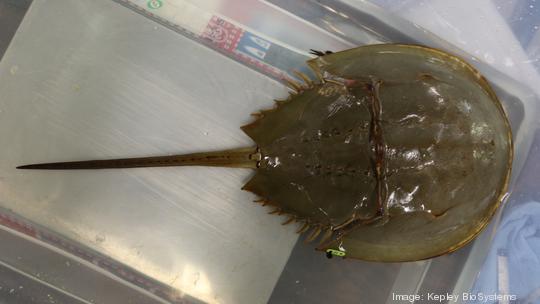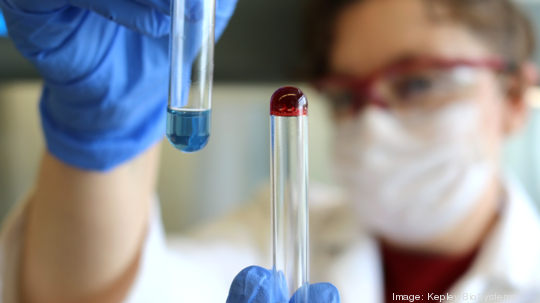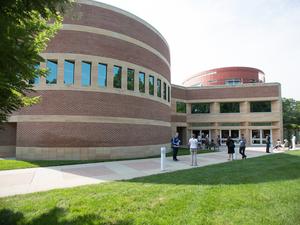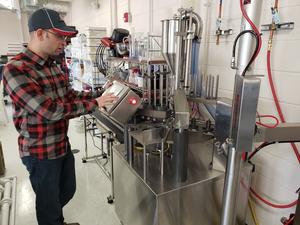
A Triad biomedical company has been awarded additional funding to research the use of blood from horseshoe crabs for human diagnostics, such as detecting bloodstream infections.
The National Science Foundation (NSF) has awarded Greensboro-based Kepley BioSystems a $1 million Small Business Innovation Research (SBIR) Phase II grant.

Founded in 2015, Kepley is an academically inspired startup based in Gateway Research Park.
The biomedical industry harvests the blood for the crabs’ immune cells, which is used to create a reagent called limulus amebocyte lysate (LAL) that is commonly used to test drugs and medical devices for contamination and human bloodstreams for infection. Anthony Dellinger, president of Kepley, said that the harvesting process kills anywhere from 15 to 30% of horseshoe crabs each year and has negative effects on the crabs’ overall viability.
Kepley BioSystems is working to solve two issues in this realm – first, how to sustainability breed and harvest horseshoe crabs through ranching, and second, how to adapt the LAL and human blood sample for an early screening test for sepsis.

Sepsis is the leading cause of hospital mortality and Kepley said it is the most expensive health care challenge, costing $62 billion annually in the United States.
"If we can impact the entire continuum of care - from admissions through patient care and discharge - by identifying infections early and optimizing treatments, this work could save lives," said Rachel Tinker-Kulberg, director of research and development at Kepley.
Kepley is working to develop a quick diagnostic test, as time is crucial in treating sepsis. The LAL in horseshoe crabs reacts to pathogens at parts-per-trillion levels – the same sensitivity as adding a drop of water to 20 Olympic-size pools, the company said.
Kepley was previously awarded a total of $500,000 in NSF SBIR Phase I funding for its work with horseshoe crabs and in early 2022 was awarded $10,000 from North Carolina Biotechnology Center’s NC BIONEER Venture Challenge. It also had received $1 million in NSF funding for its research and creation of synthetic fish bait.
“It’s rewarding to see additional investment in Kepley BioSystems to help advance the commercialization of its important research,” said Nancy Johnston, executive director of N.C. Biotech’s Piedmont Triad office.
As of March, Kepley employs six full-time with a regular influx of interns. The company was a finalist in Triad Business Journal’s inaugural Inno Madness competition in March.








